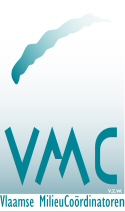1. Sustainable Production - Theo Geerken
| General Introduction | ||||||||||||||||||||||||||||
|---|---|---|---|---|---|---|---|---|---|---|---|---|---|---|---|---|---|---|---|---|---|---|---|---|---|---|---|---|
The focus of sustainable production varies across the world. In developed economies the focus lies on environmental improvements under acceptable socio-economic conditions, whereas the focus in the bottom of the pyramid economies is on socio-economic improvements under acceptable environmental conditions. Today the developed economies not only need to survive themselves, but also need to create environmental space for bottom of the pyramid economies. At the same time the interdependence across all economies for resources is increasing. Sustainable production already has a long track record, nonetheless the number of hard and soft policies for sustainable production are still increasing at all scale levels : substances, technologies, products, factories, companies, industrial area's, sectors, regions, countries, economic area's , world level etc. Also a wide array of policy instruments is applied ranging from informative and market based to command and control instruments. In one conference one cannot cover all these dedicated policy area's into detail but we would like to reflect on the success factors of these policies and their instruments, the need and practice for better regulation and the question whether there is still a need for more (complementary) policies. Research actors and communities continuously are improving or extending existing tools, methodologies, general concepts and approaches like industrial ecology, material flow accounting, life cycle management, (hybrid) IO-LCA, eco-efficiency, circular economy, system innovation , transition management or trying to define new ones. We would welcome contributions from new developments in these fields, illustrated with their added value for sustainable production and some empirical evidence of their application. Business actors and producers independently from policy measures increasingly have taken up sustainability issues as a strategic driver and are using for instance sustainability reporting as a communicating instrument but also as an internal driver for continuous improvement on sustainability performance. In this conference we welcome contributions from businesses on their experience and lessons learned about improving their sustainability performance. Finally consumption and production are closely related, two sides of a coin, which means that also consumers and end-users have a role to play. Approaches that aim for sustainable production through demand side measures are for example carbon footprint labelling, eco-labelling, green public procurement, rating systems for green building. Both at international (UNEP), European and national level Sustainable Consumption and Production (SCP) is a subject of growing interest, sometimes called "sustainable development in practice". The SCP area, which addresses both production and consumption, is still under development and we would welcome contributions that show successful pieces or approaches for the SCP puzzle, or show a promising way forward to develop this new emerging field. "The EU approach and new developments for Sustainable Production"
|


